- Home
- Anthony Burgess
Enderby's Dark Lady Page 2
Enderby's Dark Lady Read online
Page 2
"Martyrs' crowns," Ben said. "Think not of it."
"You will do the deed?" Catesby said, leaning closer to Ben and, indeed, discharging a blast of hammy garlic onto him.
"I will think on it," Ben said. "Your reasons are of a fairly persuadent order. I will go home now and start to think on it."
"Guy here will go home with you," Catesby said, "and help you think on it."
"No, he will not," Ben said. "I want none breathing on me while I think. I go into this in full libero arbitrio. I cannot be made to do it."
"That is true," Catesby said. "Except by the promptings of your own destiny, Master Jonson. I see the martyr's crown hovering above you." He looked somewhat fiercely at Tresham. "Frank," he said, "you waver. It is strange you waver when you were loudest once in saying perdition to the betrayer of the faith of his own royal mother. There are measures may be taken to discourage waverers." He looked at dark Guido and then back at pale Tresham.
"I am no waverer. I ask only that we right our souls on this matter of the killing of Catholics along with Protestants. It is a matter of theology I would ask that we concern ourselves withal."
"Theology," little Bates now said. "There is enow of theology at the Godless court, holy Jamie and his atheistical bishops. Out on theology. Let us have the true faith back and God's enemies blown up. I drink to you," he said, "Master Jonson," and drank.
"I too drink to me," Ben said, and drank likewise. He wiped his loose lips and wrung his beard and said, looking at the company severally, "Now I go home. To pray. For blessing and eke for guidance."
"Guido will go with you for guidance through the perilous streets," Catesby said.
"I go alone. I am in no peril."
"Guy will be your guide."
Ben, with Guido Fawkes at his flank, was some way advanced through the warren of stinks and drunkenness and stinking drunken bravoes that led to his lodgings when, to keep up his courage, he began to sing:
"Here will we sit upon the rocks
And see the shepherds feed their flocks
By shallow rivers to whose falls
Melodious birds sing madrigals."
At the song Fawkes clicked his fingers and said:
"Spy."
"I cry your mercy, what was that?"
"Spy, I said. I think you to be a manner of spy."
Ben ceased walking or rolling and looked at him fair and straight beneath the moon. "You are drunk, man. You know not what you say."
"Spy. I asked myself long who it was you put me in mind of, and he too was a poet and spy. He cried his sodomitical atheism to the streets, and none did him harm. I conclude he was under protection. His name was Kit Marlowe. That was a song of his you were singing but now. Spy."
"Marlowe," Ben said soberly. "He was all our fathers, though he was slain young, God help him. You flatter me more than you know. But I am no spy." They heard as it were antiphonal singing, though more drunk than sober, approach.
"Sit we amid the ewes and tegs
Where pastors custodise their gregs
And cantant avians do vie
With numinous sonority."
"O Jesus," Ben prayed. "Jack Marston."
It was Marston, true, drunk, true, but able to see, mainly from the bulk, who stood in his path. "Jonson, cheat, rogue, liar, ingrate, thief too. I am out now, see, and have learned all. Graaagh." The sound was of blood rising in the throat.
"You speak too plain to be true Marston. Where be your inkhorn nonsensicalities? Thief, you say. No man says thief to Jonson. Any more," he added to Fawkes, "than he says spy."
"Thief I say again. You said that you would pay me when Henslowe paid you, that Henslowe had not paid you, therefore you could not pay me. But Henslowe has paid you, has, thief. I was with him this night, I saw his account book. Draw, thief." He drew himself, though staggering.
"If it is but six shilling and threepence you want, let us have no talk of drawing. Come to my lodgings and you shall have a little on account. I will not have that thief, Jack. I am a man of probity and of religion."
"Of that we hear too," Marston cried. "The lactifluous nipples of the Christine genetrix and the viniform sanguinity of the eucharistic abomination. Draw."
"Very well." Ben sighed and unsheathed his short dagger. "I have killed, Jack," he said, "and my adversary was sober. I killed Gab Spencer, remember, and he too said thief." Ben now saw the reflection of flames in a bottle-paned window. Torches lurching round the corner of Cow Lane. Four men with swords and cudgels, the watch. With relief he lunged towards Marston. Lunging, he saw Fawkes flee. Wanted no trouble, right too, right for his filthy cause. Marston thrust, tottered, fell. Ben sheathed his dagger and leapt onto Marston's back, took his ears like ewer handles and began to crack his nose into the dirt of the cobbles. Then the watch was on him.
It was four of the morning when Will received the message to go at once to the Marshalsea. A boy hammered at the door below and Will went to his window, Mountjoy in his nightshirt also appearing, a minute later, at his.
"Mester Shakepaw?"
"Approximately. What, boy?"
"Mester Jonson in the jail do want ye naow vis minik."
"He wants money?"
"I fink not sao. E gyve me manny, a ole groat, see ere."
"Go away, garsoon," Mountjoy cried harshly, "discommoding the voisinage so. We desire no parlying of prisons in this quartier. It is a quartier respectable."
"I'll come," Will sighed. "I'll come now."
Few were sleeping in the Marshalsea. There was a kind of growling merriness, with drink, cursing, fumbling at plackets, gaming, a richer though darker version of the dayworld of the free. There was even a one-eyed man selling hot possets. Will listened, sipping, to Ben's story. "The names," Ben said, "take down the names."
"I can remember well enough of the names."
"You cannot. You are poor at remembering. You cannot remember even your own lines. Take your tablet, take down the names. And then to Cecil."
"Now?"
"Now, yes. Easy enough for you. You're a groom of the bedchamber, a sort of royal officer."
"This is no jape?"
"This is by no manner of means a jape, God help us. Go. I am, thank God, safe enough here. Cecil will understand all that, why I wish to be shut away. I am safe enough here till he has them."
"I will write them down, then."
"Do, quick. Then go."
"So," Will said. "Kit is truly your master. Though look where his spying got him. A reckoning in a little room. Keep off it, Ben. Playwork is duller and pays less well. But it is safer."
"Go now. He will be up. He does a day's work before breakfast."
Will sat, in groom's livery, too long in the anteroom. He had spoken of his business to secretaries of progressively ascending status, and none would come alive to the urgency of it. One had even said: "If you would speak of plots for new plays, then must you go to the Lord Chamberlain. Here be grave matters in hand."
"You will be at no graver work than the scotching of this that I tell you of." Weary, three hours gone by, Will took to sketching of a drinking song he had been asked for by Beaumont, something for a comedy to be called Have at You Now Pretty Rogue or some such nonsense:
Red wine it is the soldier's blood
And if it be both old and good
So take a rouse
And let's carouse
And
Strange, he had been infected by Ben's feigned unreformed eucharisticism. No, it was tother way around. Blood turned to wine, not wine to. His head was spinning with lack of sleep, he needed much sleep these days, past his best, looking westward. He began to calculate his fortune in real estate, but that led him to things needful to be done in Stratford. The load of stone still encumbering the grounds of New Place and neither paid for yet by the Council nor taken away. His brother Gilbert had written of some odd useful acres he might – He was shaken to here and now by the top secretary, who said:
"You are to come
in. And quickly, rouse. My lord speaks of urgency."
"He was not very urgent in speaking of it."
"Come your ways."
Robert Cecil, Earl of Salisbury, big-headed and dwarf-bodied, stood with his hunchback turned to the great seacoal fire. Papers, papers everywhere. He said:
"I am glad, albeit it be brief, to make acquaintance of the man. The plays I know. Your Amblet was fine comedy. What is this story?"
Will told him. "And Master Jonson fears for his life now. He deserves, if I may say this, my lord, very well of you."
Cecil picked up a letter from his desk. "This has but now come to me. You know of a certain Francis Tresham Esquire?"
"His name is, I think, on the list I gave."
"He has a brother-in-law, Lord Monteagle. Lord Monteagle has sent me a letter from this Tresham, and it saith nought but this: "They shall receive a terrible blow this parliament, and yet they shall not see who hurts them. The danger is past as soon as you have burnt this letter." As you see, it was not burnt, nor will it be. I am conveying it at once to His Majesty. So what you bring from Master Jonson conjoined with this does but confirm what the King will say he knew all along, that he hath enemies." Cecil smiled very thinly. "Moreover, it would seem that his dreams are often charged with what may be termed a memoria familiaris. Blowing up comes much into them. His father, the Lord Darnley, was, as you will know, blown skyhigh at Kirk-o-Fields in Scotland while his royal mother was dancing at some rout or other. So, I thank you for this your loyal work -"
"A tragedy, good my lord."
"It might well have been so."
"No, no, my play, which some call Hamlet."
"Was it so? I remember laughing. Now I will remember the intention was tragic. And remember too to have Master Jonson out of the jail where he languisheth as soon as the conspirators be apprehended." Cecil gave his hand, very crusty with rings, to Will. Will was not sure whether he was meant to kiss it. But he shook it sturdily and left.
When Ben Jonson was let out of jail he went straight to William Shakespeare's lodgings in Silver Street and said:
"Let us drink."
"Ben," Will said, "if you mean we are to go again to this low papist tavern full of vomit -"
"Nay, show sense, man, that was but show. That was part of the part I played and played well. I am as good a son of the English Church as any that was fried under Bloody Mary, and I will prove it Sunday by drinking the whole chalice off before all the world. I say let us drink. I say also let us eat, it being near noon. I have good King's gold here." He made jangle the little purse at his waist or no-waist. Clink clank. "We will eat roach pie and flawns at the Mermaid."
Ben told it all over the fishbones and pasty fragments. "Of course," he said, "the King will have it that he foreknew all. Let them, says he, get in theirrr Godless butts of gunpowderrr and I myself, laddies, will marrrch thither with guarrrd and witness to prrrove it was no tale. So he did, and so he says that he has singlehanded saved the rrrealm. Will you come to the hanging?"
"I will not."
"Squeamish as ever. Twelve men swinging aloft in the sun and enow guts and blood and hearts ripped out to feed the King's kennels a whole day. There is a little book to come," he coughed modestly.
"I thought you were waiting to print all your plays, such as they be, in one great book called Ben Jonson's Works, mad notion. Or is it epigrams and corky expatiations all in Greco-Latin?"
"I will let pass your pleasantries. This little book will have no name of author below the title, though all shall know from the mastery whose it is. The title is to be A Discourse of the Manner of the Discovery of the Late Intended Treason."
"That is too long."
"Have a care, man. It is the King's own. And it is to be spread abroad that the King's self had the writing of it but was too royally modest to set his name thereto. It is a terrible false world."
Will now quoted from something he was writing. "We have seen the best of our time. Machinations, hollowness, treachery, and all ruinous disorders follow us disquietly to our graves."
"You sound as though you cite somewhat from some new kennel of misery you are hammering together unhandily."
"A tragedy, aye. About a king that insists on divine right and knee-killing deference and fulsome fawning and will not have the plain truth. He is cast out into the cold and goes mad and dies."
"A care, Will, a care."
"It is for the court."
"O Jesus, O blood of Christ not really present on the altar. You will be hanged and quartered like any Guy Fawkes."
"I care not. We have seen the best of our time."
When Christmas came to court, Lear, done by Dick Burbage, ranted and tore his beard, and Queen Anne slept or woke and pouted at what seemed most unseasonable for Yule, a time of drunken showing of one's legs in some pretty wanton masque, while James drank steadily and chewed kickshaws offered by a succession of lords on bended knee. After the play he ranted. The Grooms of the Royal Bedchamber were there, in livery after their acting, yawning, Will among them, hound-weary, half-listening.
"Therrre ye see, my lorrrds and ladies and guid laddies a', what befalleth a king that trusts too much in human naturrre. It is the trrragedy of ane that insisteth not enough on his divine rrricht. He lets gang the rrrule o's rrrealm tae ithers. Weel, thank God though I hae drrrunken sons I hae nae ambitious dochters of yon stamp. Aye aye aye." Then he suddenly shouted. "Kingship, kingship, kingship," so that many of the drowsy started full awake. "I was but rereading in the Geneva Bible this day, aye, and find therrre mickle to offend, aye. Much flouting I find of the divinity of kingship in the saucy marrrgins therrreof. Aye, I was in the rrricht of it, the divine rrricht I may say, to hae thrrrown oot of the rrrealm a bulk nae matterrr hoo holy that hath been defiled by the pens of Godless rrrepublicans, aye. It is verrry parrrtial in its notes and glosses, verrry untrrrue, seditious, and savourrring tae much of dangerrrous and traitorrrous conceits. When, my lorrrd arrrchbishop, shall we see our ither, our new, our Godly?"
"They are hard at work, your grace," said the Archbishop of Canterbury, huge archiepiscopal rings of weariness under his eyes. "All fifty-four translators, all six companies. Andrewes and Harding and Lively report well of the progress of the holy work and say but four years more will see it sail gloriously all pennants flying into port."
"So Harrrding looks lively and Lively labourrrs harrrd, eh, eh?" There was loud and immediate laughter that went on long while the King beamed around and said: "Aye aye aye."
Will could see that his majesty was looking in vain for a pun that should bring Lancelot Andrewes, head of the Westminster translating groups, into his fancy. Without premeditation Will came out, in a firm all too audible actor's voice, with:
"Each Bible scholar, so the ungodly say,
Works lively hard Englishing for no pay
The royal Bible, aye, and rewes the day
When such an unholy labour came his way."
There was a terrible silence into which the King waded rather than leapt. He said:
"And wha micht ye be, laddie? Wait noo, I ken, I ken, ye are he that wrrrit the play of this nicht, are ye not?"
"Aye, William Shakespearrre, yourrr majesty," Will said, hearing with horror an effortless parody of the royal accent.
"Ye maun wrrrite it doon, yon saucy blasphemous irrreverrrent and impairrrtinent lump o' clairrrty doggerrrel, that all may see, laddie."
"I have forgot it already, your royal majesty," Will said, hearing in horror the faint traces of the sobbing Danish intonations of the Queen.
"Aye." It was clear that James did not know well what to do. Will had often met this situation when being unpremeditatedly pert to the great. He now willed the King out of his problem. Be sick, great greatness. "Aye, ye and yourrr saucy rrrhymes." He looked green and began to heave. It was, indeed, the usual end of a court soirée. Some writer of music for the virginals, Tomkins or somebody, had spoken of producing a tiny sequence consisting of the King'
s Rouse, the King's Vomiting, the King's Rest. "I maun gang," the King said, very green. "I mind ye, laddie, I'll mind yourrr sauciness." Then, on the arms of two simpering earls, he was led away to the Harington water closet, invention of the late Queen's godson, Britain 's contribution to the civilization of Europe.
"By Christ," Burbage said, "you get away with murder."
"What Ben Jonson says. Thank God our revels now are ended, aye."
When, much much time later, Ben Jonson was let out of jail he went straight to William Shakespeare's lodgings in Silver Street and said:
"Let us drink."
"Ben," Will cried. "Your ears are untrimmed and your nose whole. I'm glad to see you well."
"But thirsty."
"Drink water then. It seems to me that less and less of wine makes in you more and more of oppugnancy. If this drunken watch-beating continues it will be a matter of one day's holiday between longer and longer lingerings in the Clink."
"The Marshalsea. Listen. It was a strange time. I worked on the Bible."
"What?" They went down the stairs, past Mountjoy scolding his daughter Marie for loving the apprentice Belott, into the street, demoted to lead by the dull day. There were more drunk about than usual, belike because of the dull day. "The Bible, this I know, has already been worked on, nay worked out. They are at the great final stage of the galleys. And it is Harding and Lively and Andrewes, not you, that had the making of it. You are a man of some small reasonable talent, Ben, but you are no man of God. It is work for men of God that gratuitously or necessarily know Greek and Latin and Hebrew."
"I know all those tongues," Ben said. "I can Hebrew you as well as any clipped rabbi. It is, indeed, the work that comes before the final launching that has made lively my days in the stinking rathole of the Marshalsea. For, since I am a poet, they brought to me the poesy of the Bible. Meaning Job and the Psalms and the like. You are a poet, they said. Tickle our sober accuracy into poetic life. So I dip quill in horn and correct the galleys to a diviner beauty."

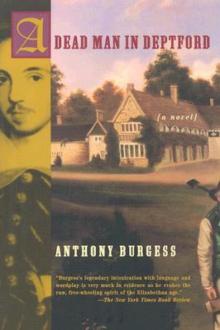 A Dead Man in Deptford
A Dead Man in Deptford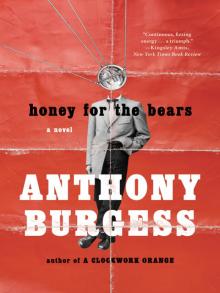 Honey for the Bears
Honey for the Bears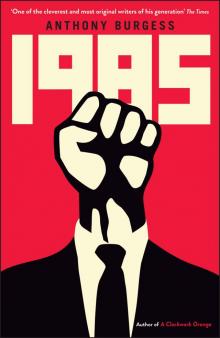 1985
1985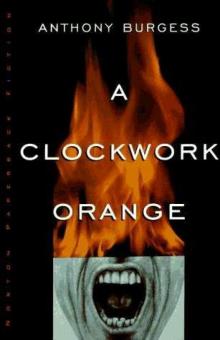 A Clockwork Orange
A Clockwork Orange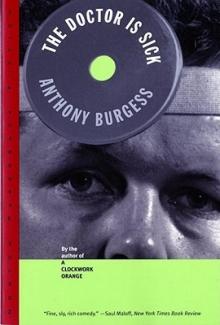 The Doctor Is Sick
The Doctor Is Sick Earthly Powers
Earthly Powers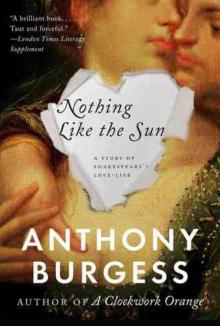 Nothing Like the Sun
Nothing Like the Sun Collected Poems
Collected Poems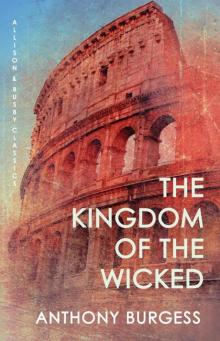 The Kingdom of the Wicked
The Kingdom of the Wicked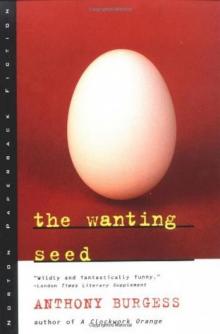 The Wanting Seed
The Wanting Seed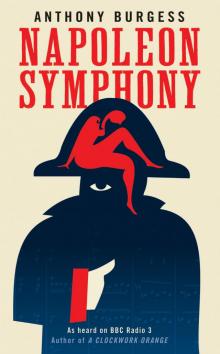 Napoleon Symphony
Napoleon Symphony The Malayan Trilogy
The Malayan Trilogy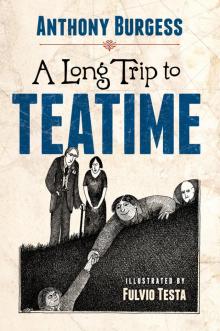 A Long Trip to Teatime
A Long Trip to Teatime Enderby Outside
Enderby Outside M/F
M/F The Complete Enderby
The Complete Enderby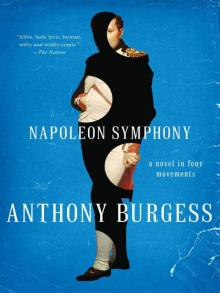 Napoleon Symphony: A Novel in Four Movements
Napoleon Symphony: A Novel in Four Movements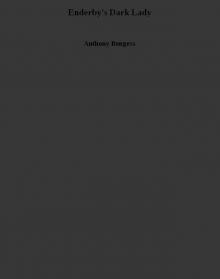 Enderby's Dark Lady
Enderby's Dark Lady The Clockwork Testament (Or: Enderby 's End)
The Clockwork Testament (Or: Enderby 's End) ABBA ABBA
ABBA ABBA A Clockwork Orange (UK Version)
A Clockwork Orange (UK Version)